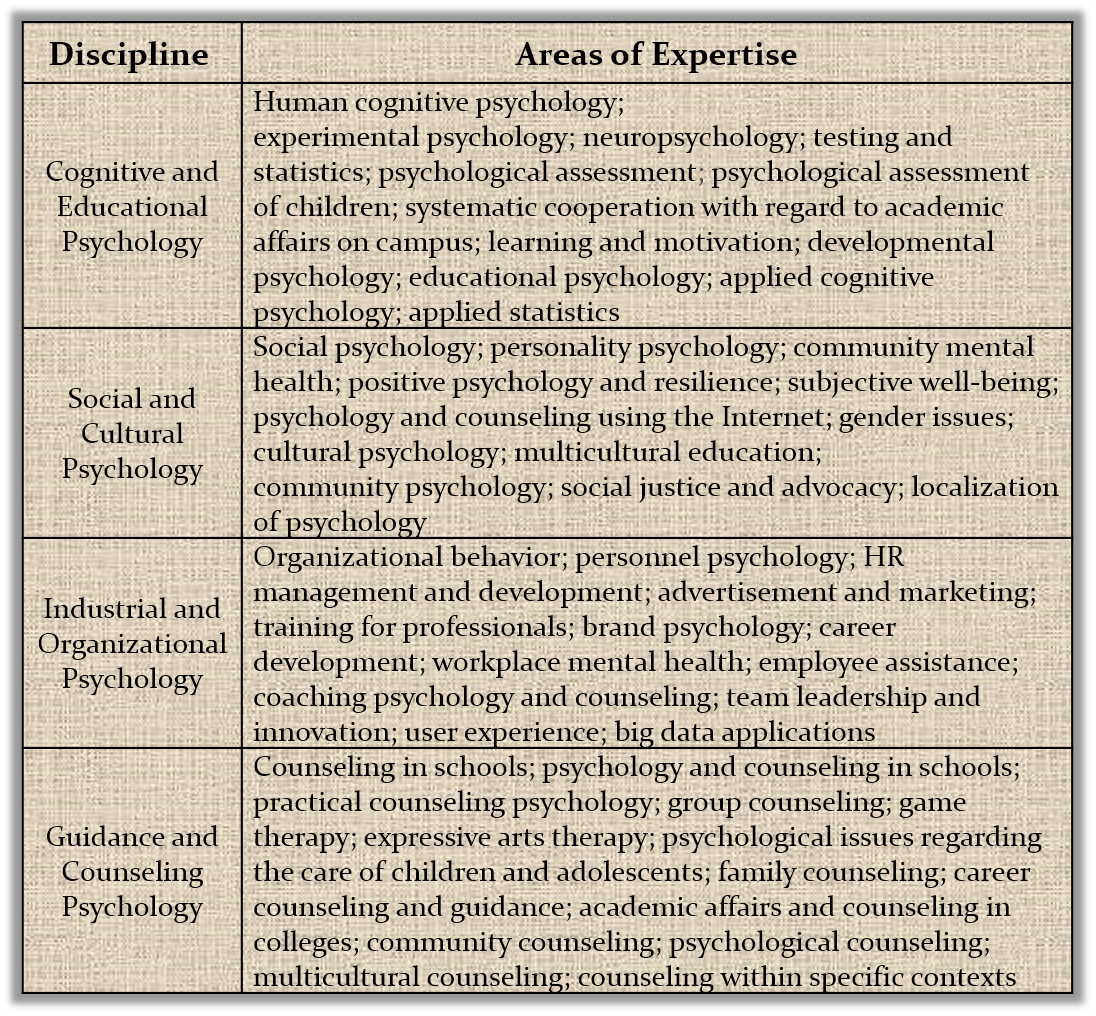Research Areas
In its establishment, the Department of Educational Psychology and Counseling (hereinafter “the department) was based on basic psychology, educational psychology, counseling, and business and industrial psychology. At present, faculty specializations center on counseling, applications of business and industrial psychology, cognitive development and education, and social and cultural psychology. The department has several areas of focus.
- The Community psychology and counseling division focuses on social and community psychology and multicultural counseling, which they integrate with counseling, consulting, counseling psychology, as well as personality, social and cultural psychology. This division explores key topics in various practical fields from the perspectives of counseling, consulting, multiculturalism, community psychology, group work, and group leadership. Topics include research into emerging social issues, community counseling, multicultural counseling, cultural psychology and education, group dynamics, team and service learning, and Internet psychology.
- The Organizational psychology and counseling division focuses on business and industrial psychology and practical work in organizations, which they integrate with counseling, consultation, counseling psychology, organizational psychology, and brand marketing, with an emphasis on team leadership, organizational psychology, human resources, marketing management, and employee counseling and assistance. This division endeavors to advance emerging research in human resource, brand psychology, workplace psychological health, employee assistance programs , employee training, user experience, coaching psychology, and team leadership.
- Specialized methodology involves the diverse application of research methodologies and cutting-edge technologies in investigative interviews, big data, cloud computing, investigation, experiments, statistics, testing, evaluations and assessments, qualitative research, interpretative research, narrative research, solution design, field investigation, and action research. The department also focuses on the adoption and research and development of emerging or critical technologies.
- Basic psychology and in the integration of psychological knowledge are grounded in the five key basic subfields of psychology. These subfields are cognitive psychology, developmental psychology, personality psychology, cultural psychology, and social psychology. The goal is to develop a comprehensive system of knowledge through congruence between theory and practice .
Furthermore, the department integrates psychology and counseling into the three major spaces in human life (schools, communities, and organizations) through the practical application of psychology, the research, development and practice of professional models, and commitment to developing practice-oriented research. The department is also committed to the progressive development of school psychology and counseling, community psychology and counseling, and organizational psychology and consultation. In particular, the department emphasizes theoretical and practical integration between disciplines, especially the integration of psychological counseling, guidance, and consultation, and other helping professions with the other three disciplines to develop cutting-edge and interdisciplinary psychological applications. The doctorate program—including on-the-job training, advanced practical research, and the development of cutting-edge research—aims to cultivate talent in psychological practice, research, and leadership at all school levels (guidance for K-12, universities, colleges) and in communities (including offline communities, teams, cultural groups, and online communities) and business organizations (including industrial and commercial enterprises, corporations, and social organizations).

